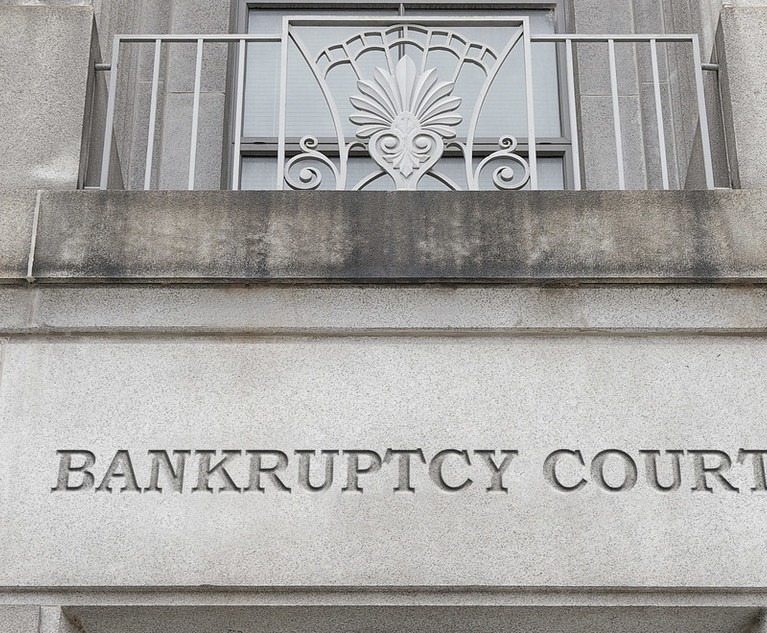In cross-border restructuring situations, it is often necessary or advisable to have the orders of a foreign court recognized and enforced here, as well as enabling or enlisting the support of a U.S. court through proceedings that are ancillary or supportive to the foreign proceeding. A primary method of obtaining such relief in financial restructuring and insolvency proceedings is obtaining recognition for the foreign proceeding by a U.S. Bankruptcy Court under Chapter 15. The Bankruptcy Court for the Southern District of New York recently recognized a scheme of arrangement sanctioned by a court in the Cayman Islands, the debtor’s place of incorporation, even though the debtor conducts substantially all of its business operations in the People’s Republic of China. In re Modern Land (China) Co., Ltd., 2022 WL 2794014, Case No. 22-10707 (MG) (July 22, 2022). Chapter 15 of the Bankruptcy Code addresses the potential tension among the court in the jurisdiction in which an enterprise operates, the court in the offshore jurisdiction in which the parent is organized and the court in the jurisdiction governing the debt. In this case the bankruptcy court recognized the Cayman scheme, discharging debt subject to New York law for a real estate enterprise operating almost entirely in China. Relying upon the Second Circuit’s ruling in Fairfield Sentry, overwhelming creditor support and the court’s ability to effect the relief sought, the bankruptcy court concluded that the involvement of a local court and the presence of activities related to a Cayman scheme proceeding were sufficient to make the Cayman Islands the company’s center of main interest (COMI). That determination provided the predicate for granting recognition to the scheme proceeding as a foreign main proceeding.
The Modern Land decision comes upon the heels of a related decision by a Hong Kong court questioning the ability of a scheme, even if recognized under Chapter 15, to effect a discharge of debt governed by New York law. Referencing an earlier decision by the New York bankruptcy court, the Hong Kong decision reflects an English doctrine, known as the Gibbs rule, that reserves the ability to alter or discharge debt subject to English law to English courts, reasoning by analogy that debt subject to New York Law would not be discharged in a Cayman Island proceeding even if the Cayman court sanction order were to be later recognized under Chapter 15 in the jurisdiction of the debt’s governing law. The bankruptcy court addressed the concerns raised in the Hong Kong decision and determined that the restrictive view of the Hong Kong court was erroneous as a matter of long-standing U.S. law on comity as well as precedential decisions under Chapter 15 recognizing court-sanctioned schemes from foreign jurisdictions affecting debt governed by New York law. The court confronted the question of whether the COMI of Modern Land was in the Cayman Islands, the jurisdiction of its organization, when its only activities in the Cayman Islands were the restructuring steps taken through a scheme of arrangement presented to and sanctioned by a Cayman Island court. The court began its analysis with the proposition established in Fairfield Sentry that an insolvency proceeding and the activities of court appointed liquidators are sufficient for COMI. The court considered the steps taken to restructure debt through a court supervised scheme, the overwhelming creditor support for the scheme, as well as the absence of objection to recognition of the scheme proceeding, to conclude that the relief sought was consistent with creditor expectations and the goals of Chapter 15. Based on those factors, the court found the COMI of Modern Land was in the Cayman Islands. The court reached this conclusion despite its view that the absence of economic activity in the Cayman Islands precluded a finding, as an alternative basis for relief, that the scheme proceeding was a nonmain foreign proceeding.
This content has been archived. It is available through our partners, LexisNexis® and Bloomberg Law.
To view this content, please continue to their sites.
Not a Lexis Subscriber?
Subscribe Now
Not a Bloomberg Law Subscriber?
Subscribe Now
LexisNexis® and Bloomberg Law are third party online distributors of the broad collection of current and archived versions of ALM's legal news publications. LexisNexis® and Bloomberg Law customers are able to access and use ALM's content, including content from the National Law Journal, The American Lawyer, Legaltech News, The New York Law Journal, and Corporate Counsel, as well as other sources of legal information.
For questions call 1-877-256-2472 or contact us at [email protected]


 Corinne Ball, with Jones Day. Courtesy photo
Corinne Ball, with Jones Day. Courtesy photo




